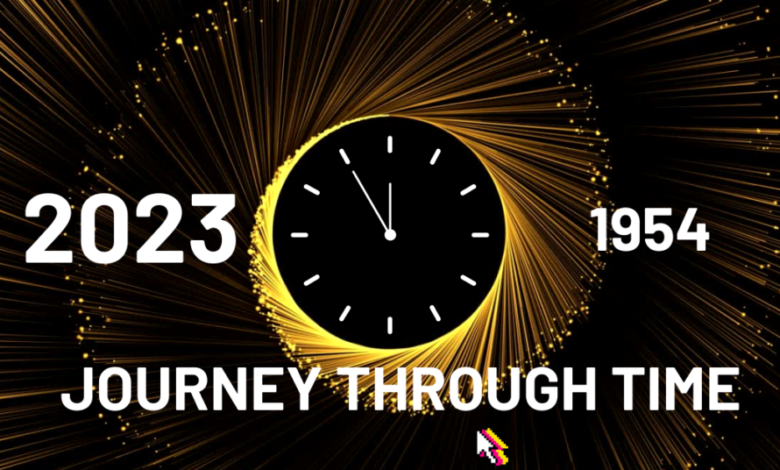Reliving History 2023 to 1954: A Guide to the Year’s Most Notable Events

Introduction
Are you a history buff eager to traverse time and explore the most remarkable events from 2023 all the way back to 1954? You’re in the right place! This blog post takes you on a thrilling voyage through history, highlighting the pivotal moments that have shaped our world. From key political movements to cultural milestones, and technological breakthroughs—this guide covers it all. Buckle up and prepare to relive history through this comprehensive timeline of notable events.
The World in 1954
The year 1954 was a significant turning point globally. Key political, social, and technological events unfolded that would have a lasting impact on the world order. One of the standout events was the Geneva Conference, which aimed to resolve issues in Korea and Indochina. The conference resulted in the partition of Vietnam, setting the stage for future conflicts.
On the social front, the U.S. Supreme Court’s landmark decision in Brown v. Board of Education declared racial segregation in public schools unconstitutional. This ruling was a monumental step towards civil rights and equality, igniting movements across the country.
Technologically, 1954 saw the launch of the first nuclear submarine, the USS Nautilus. This development not only showcased advancements in military technology but also highlighted the growing influence of nuclear power in various sectors.
The Changing Face of Cultures
The mid-20th century was a period of profound cultural shifts. In 1954, rock ‘n’ roll began to take shape with artists like Elvis Presley making their debut. This new genre revolutionized music, influencing generations to come.
Art and literature also saw notable contributions. J.R.R. Tolkien’s “The Lord of the Rings” was first published, captivating readers with its intricate fantasy world. In the realm of visual arts, Jackson Pollock continued to push boundaries with his abstract expressionist paintings.
Figures like James Dean became cultural icons, embodying the rebellious spirit of youth. These cultural milestones were not just entertainment; they reflected deeper societal changes and the evolving identities of communities worldwide.
Advances in Science and Technology
Scientific discoveries and technological innovations in 1954 laid the groundwork for future advancements. One of the most significant achievements was the discovery of the double-helix structure of DNA by James Watson and Francis Crick. This breakthrough revolutionized the field of genetics, opening doors to numerous medical and scientific possibilities.
In the realm of technology, the creation of the silicon transistor marked a leap forward in electronics. This tiny device paved the way for the development of modern computers, making technology more accessible and efficient.
Space exploration also took a giant leap with the launch of the first solar-powered satellite, Vanguard 1. These advancements not only showcased human ingenuity but also set the stage for future explorations and technological marvels.
The Decolonization Wave
The mid-20th century was characterized by a wave of decolonization, as many countries sought independence from colonial powers. In 1954, the struggle for freedom intensified with significant movements and milestones.
Vietnam’s fight for independence culminated in the Geneva Accords, leading to the temporary division of the country. This event marked a critical moment in the decolonization process and set the stage for future conflicts in Southeast Asia.
In Africa, the Mau Mau Uprising in Kenya highlighted the growing resistance against colonial rule. These movements were not just political; they represented a broader quest for self-determination and cultural identity.
The impact of decolonization was profound, reshaping global politics and altering the course of history. The drive for independence inspired many other nations, leading to a domino effect of liberation movements across continents.
The Cold War
The Cold War was a defining conflict of the 20th century, and 1954 was no exception. This year saw significant developments in the ongoing struggle between the United States and the Soviet Union.
One of the key events was the signing of the Mutual Defense Assistance Act, which aimed to bolster NATO allies against the perceived threat of Soviet aggression. This move further entrenched the divisions between East and West, heightening tensions.
In addition, the development of the hydrogen bomb by both superpowers marked a chilling escalation in the arms race. The threat of nuclear warfare loomed large, influencing international relations and shaping the geopolitical landscape.
The Cold War’s impact was felt globally, affecting not just politics but also culture, economics, and daily life. The ideological battle between capitalism and communism defined an era and left an indelible mark on history.
Conclusion
The years between 2023 and 1954 were filled with events that have shaped our present and will continue to influence our future. From groundbreaking scientific discoveries to pivotal political movements, each moment in this timeline holds significance.
Understanding these events helps us appreciate the complexities of history and the interconnectedness of our world. It also reminds us of the progress we’ve made and the challenges we’ve overcome.
History buffs, we invite you to share your thoughts and reflections on these events. Let’s continue exploring and learning from the past, as it holds valuable lessons for our future. Engage with us, and let’s keep the conversation going.
In summary, the period from 2023 to 1954 was marked by significant milestones that have had a lasting impact on our world. By revisiting these events, we not only honor our history but also gain insights that can guide us in the present and future. Keep exploring, keep learning, and keep appreciating the rich tapestry of our shared history.



